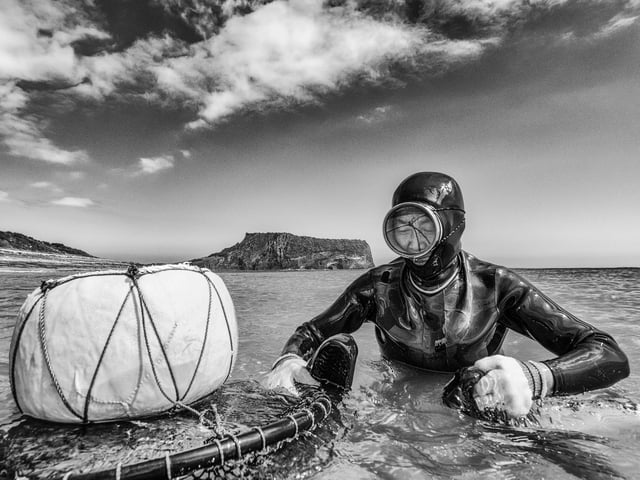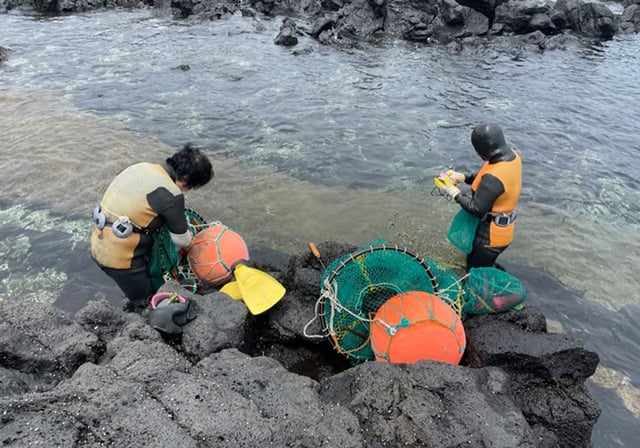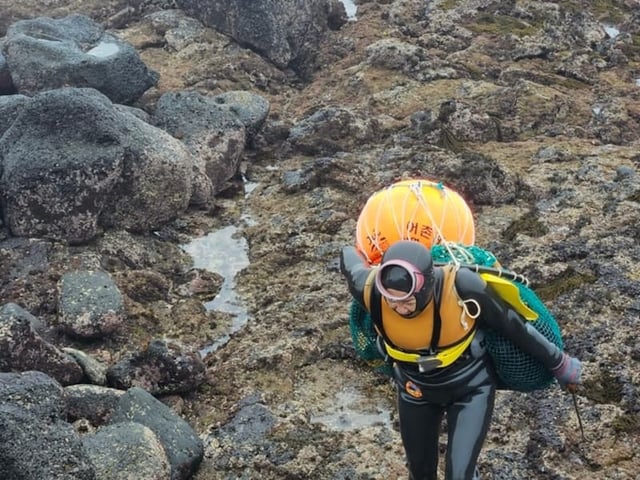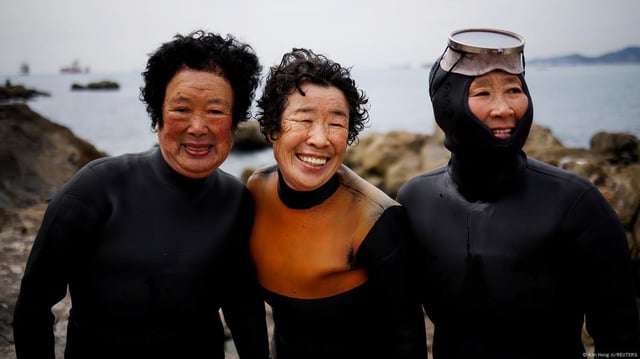Overview
- A Cell Reports study led by geneticist Melissa Ilardo reveals two genetic mutations in Haenyeo divers: one enhances cold tolerance, and the other regulates diastolic blood pressure, offering resilience during deep dives.
- The Haenyeo exhibit a pronounced bradycardia response—a slowed heart rate during dives—developed through lifelong training and the mammalian dive reflex, which conserves oxygen.
- The study highlights evolutionary adaptations in the Haenyeo, situating them alongside other environment-specific human adaptations, such as the Bajau divers’ enlarged spleens and high-altitude populations’ oxygen-processing genes.
- Researchers are now investigating the potential for these genetic traits to inform medical therapies, including treatments for hypertensive pregnancy disorders and stroke prevention.
- The Haenyeo tradition, recognized by UNESCO as an Intangible Cultural Heritage, reflects a matriarchal diving culture that has shaped both their genetic evolution and community identity over centuries.



